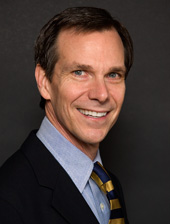Postcard from Asheville
October 2014
The Power of Fantasy: Jacob's World
“Randy, why don’t you work with Jacob today? He’s an awesome drawer,” the director suggested. It was my second day volunteering at the Open Hearts Art Center, a nonprofit agency dedicated to serving “differently-abled” adults through the arts.
“Jacob, great to meet you,” I say, shaking his outstretched hand. Jacob is a handsome, 22-year old man who is mentally disabled but highly functioning. “May I see your art?” I ask.
Jacob grins and presents a bulging sketchbook containing close to thirty anime drawings of mythological creatures, warriors, wizards, and witches. He is proud of his work, and has every reason to be. It’s terrific.
Looking over his portfolio, I have a hunch. “Jacob, tell me the story behind each of these.”
As Jacob details each drawing, I group them on the floor. An order emerges, and “Silverstone,” Jacob’s private fantasy world, begins to come to life on the dull linoleum floor.
Silverstone is a mythological universe inhabited by fantastic“embellished creatures” who are hybrids of animals we may recognize here on earth. For example, at Silverstone you might find a serpent with wings or a fish with the mouth of a lion. Jacob shares that Silverstone is a beautiful land, but all is not happy.
The embellished creatures of Silverstone are in danger. An evil army, “The Wastes,”led by The Silver Queen,is at war with the forces for the good, led by Lucinda the Good. A divine being, The Guardian,watches over but refuses to take sides unless provoked. Jacob explains that The Guardian is both evil and good. It is The Guardian who brings a divine order to Jacob’s world.
Later I learn Silverstone has its own language and alphabet. Jacob writes his name in Silverstone. It is incredible. The alphabet looks like hieroglyphics; many of the characters have what appear to be hands and feet.
Over the next couple of weeks, I begin researching fantasy worlds. There’s a word for them: paracosms.Paracosms are fictional universes, complete with their own politics, economics, and sociology. Some research suggests that seven percent of the U.S. population have a super-active fantasy life. Most know the difference between reality and fantasy, but they choose to spend more of their time in fantasy.
I learn that happy, healthy children are, if anything, more likely to be immersed in a world of fantastic daydreams, public or private, than unhappy or troubled children.In fact, cognitive science suggests that children may love fantasy not because they can't appreciate the truth or because their lives are difficult, but for precisely the opposite reason. They are single-mindedly devoted to finding the truth.
Those of us in the “real world” tend to discount fantasy, but as I begin to think about it, I wonder: could this seven percent make up many of society’s psychics, healers, and mystics? Are these children, men, and women accessing worlds, information, and knowledge that we cannot because our narrow view of reality will not allow it?
By sharing Silverstone, Jacob is opening my world up to new possibilities.
# # #



